Immigration Resources and Guidance for F-1 International Students
This page should serve as a resource for common immigration and visa questions. However, all F-1 students should contact the Principal Designated School Official (PDSO)/International Student Advisor at internationalstudents [at] emmanuel.edu (internationalstudents[at]emmanuel[dot]edu) with any questions regarding this information, or for assistance with questions that are not answered here. International students receive regular reminders via e-mail regarding this information.
Important Information for F-1 Students
As an international student on an F-1 visa, it is imperative that you ensure you are following the regulations for your visa.
While in the United States, it is federally required that you maintain the following immigrations on your person at all times. It is important to also keep separate copies.
a printed copy of your most recent Form I-20
a printed copy of your most recent I-94 arrival record (You may search for your I-94 here)
your passport, which must be valid at least six months into the future.
To stay in compliance with immigration regulations, international students should:
Report Updates to Addresses, Academic Program or Status Changes
Report any changes to your local U.S. and foreign address, major, minor, contact information, marital status, dependents or immigration status (change of status) within 10 days to the International Student Advisor at camassok [at] emmanuel.edu (camassok[at]emmanuel[dot]edu) or internationalstudents [at] emmanuel.edu (internationalstudents[at]emmanuel[dot]edu).
Maintain Full-Time Enrollment
Stay enrolled full-time (12 credits or more) during the academic year. Speak with your academic advisor and international student advisor before dropping courses, taking a reduced course load, or during your final semester. Students typically must enroll in 16 credits per semester to complete their degree by their I-20 program end-date.
Watch Program Dates
Know the end date on your I-20. Apply for an extension early if you need more time to finish your program.
Never engage in un-authorized employment
Ensure that your visa status permits employment. F-1 students are permitted to work on-campus for a maximum of 20 hours per week during the academic year with approval. Internships of any kind (paid/unpaid, remote/in-person) will need authorization through Curricular Practical Training (CPT), and will only be approved if the position meets the criteria for CPT. In some instances, Pre-Completion OPT may be recommended by the international student advisor and authorized by USCIS. Please do not accept any off-campus employment/internship before speaking with the international student advisor. Volunteer work should also be discussed first with the international student advisor.
Additional information on these topics may be found below. You may also reference Study in the States, which will be a valuable resource throughout your time in the United States.
International students will provide the international student advisor with copies of their immigration documents at the F-1 Immigration Workshop upon arrival to Emmanuel College. If you need to renew your passport or visa, speak with the International Student Advisor, as you can receive a letter of support. Please also submit copies of your renewed documents within ten days.
Your passport must always remain valid. You will need an unexpired passport in order to enter the U.S.
A valid F-1 visa allows you to apply to enter the United States at a Port of Entry. You will need an unexpired visa in order to enter the U.S. Your visa may expire while you are in the U.S., but you will need to apply for a new visa in order to re-enter the U.S. You may not apply for a U.S. visa from within the U.S.
Your Form I-20 is the immigration document which certifies your acceptance to Emmanuel College and details on your academic program including your major and program end date. The information on the I-20 must always be updated, so students should inform the International Student Advisor within 10 days of a change to any information (major, address, changes to academic program, etc.). You are responsible for keeping copies of ALL previous I-20s.
You should carry your US immigration documents on your person at all times while in the United States. Federal regulations require you to have the following documents in your possession to document your lawful status to be in the US. These documents include:
- a printed copy of your most recent Form I-20
- a printed copy of your most recent I-94 arrival record (You may search for your I-94 here: I-94 Official Website - Get Most Recent I-94 Request)
- your passport, which must be valid at least six months into the future.
International students must inform the International Student Advisor of any updates to their personal information. When any of the information below changes, students must contact the International Student Advisor within 10 days. This is a requirement, and the College must update this information in SEVIS. International students will receive information at the beginning of each semester with instructions on how to update this information online. Information includes:
- Name
- Address (Local Address or Permanent Address)
- Major (all students must inform the International Student Advisor after their major is declared during their sophomore year)
- Minor
- Program End Date/Expected Date of Graduation
- Contact Information (Phone Number, Email Address)
- Dependents
- Marital Status
International Travel
No special documentation is required for departure from the U.S. However, international students are required to have very specific documents with them in order to return to the U.S. When re-entering the United States, ensure you have the following documents on your person or carry-on luggage. Do not keep your immigration documents in your checked luggage.
If you plan to depart and re-enter during your academic program, you must have the following documents with you upon re-entry:
- Valid passport (expiration should be no less than 6 months into the future)
- Valid F-1 visa (if you need to renew your visa while travelling, reach out to the international student advisor for a letter of support)
- Form I-20 with a recent travel signature. If you received your most recent I-20 electronically, you must print out a physical copy. See below for more information on travel signatures
- Acceptance letter to Emmanuel College
- Confirmation of Enrollment at Emmanuel- current course schedule or schedule for upcoming semester if travelling during winter or summer break
- SEVIS Fee Receipt
- Financial documentation
- Consider including any other information used to apply for your F-1 visa
The U.S. Customs and Border Protection (CBP) officer at the port of entry (airport) has the authority to decide whether or not you are admissible to the U.S. This decision is based upon facts and circumstances presented at the time you apply to enter. Always provide correct information to the CBP officer. If the officer needs any additional or clarified information, it is possible that you may be sent to secondary inspection where officers will take a closer look at your documents, and you may need to wait for a longer period of time. It is possible for officers to ask to search your belongings and information stored on electronic devices. While rare, it is possible for your belongings and devices to be searched.
Emmanuel College cannot guarantee that you will be admitted or readmitted to the United States.
Travel signature
F-1 international students are required to obtain a travel signature on their Form I-20 every twelve months. This signature is an endorsement that you are eligible for travel and that you are in valid F-1 status. It is recommended that you obtain a travel signature every six months. Email the international student advisor as soon as possible if you anticipate needing a travel signature for upcoming travel.
Students on post-completion OPT are required to have a travel signature within the last six months when re-entering the U.S. Students must be enrolled full-time in order to receive a travel signature.
I-94 Record
After your arrival in the U.S., international students are responsible for obtaining their I-94 record and providing this information to the international student advisor. This is mandatory each time you travel outside of the U.S. to ensure you are in lawful F-1 status. If you notice any errors on your I-94, or if you have trouble locating your I-94, contact the international student advisor immediately. I-94 records can be found at www.cbp.gov/I94. You should also keep your I-94 on your person at all times, along with a copy of your Form I-20 and passport.
Domestic Travel
International students may travel anywhere within the U.S. Although students do not need any special documents within the U.S., they should carry all documentation (I-20, Passport, Visa, I-94 card, etc.) with them while traveling even domestically.
Full Time Status
In order to maintain F-1 status, international students must remain full-time students at Emmanuel College. At Emmanuel, full-time status is 12-20 credits. Students must also complete their degree requirements by the end date on their I-20. This typically means that students will take 16 credits (four classes) per semester to reach the 128-credit minimum for graduation.
Students on F-1 visas should always consult with their academic advisor and the international student advisor prior to dropping or withdrawing from any courses to ensure they are continuing to make normal progress toward their degree and to ensure they are maintaining status. In extraordinary circumstances, primarily for medical reasons and appropriate documentation, the international student advisor may authorize a "reduced course load" in SEVIS. Students should not drop below 12 credits without international student authorization.
Students may enroll below full-time in their last semester if they do not need to be full-time to complete degree requirements; however, this needs to be discussed with the international student advisor first and verified by the Office of the Registrar. Additionally, students living on-campus or receiving certain scholarships may be ineligible to enroll below full-time status even in the last semester.
Students may not enroll in more than one online course per semester.
Summer is considered a vacation. Students may take courses during the summer, but it is not required.
SEVIS Registration
At the beginning of each semester, the international student advisor will "register" you in SEVIS indicating that you are on-campus and registered full-time for the semester. You will receive emails from the international student advisor about this simple process.
F-1 students must complete their degree requirements by their program end-date listed on their Form I-20. If you anticipate graduating earlier than the program end date on your Form I-20, please contact the international student advisor so your I-20 can be updated.
If you will not finish your degree requirements by the end date on your I-20, you must request a 'Program Extension' before the end-date on your I-20. Contact the international student advisor for more information. A program extension requires a compelling academic or medical reason. Academic probation or academic suspension are not permissible reasons to extend an I-20 end date. Typically, students must enroll in 16 credits per semester to graduate in 8 semesters; however, some programs may require additional time.
At the end of your academic program, you will have a grace period, which indicates how long you are permitted to remain in the U.S. At the end of your academic program, you have 60 days to do one of the following:
- Obtain a new Form I-20 from a new school
- Apply for Post-Completion Optional Practical Training (OPT) or apply to change status
- Depart the U.S.
If authorized for post-completion OPT, at the end of post-completion OPT, students have 60 days to do one of the following:
- Obtain a new Form I-20 from a new school
- Apply to change status
- Depart the U.S.
Students should indicate their post-graduation or post-OPT plans with the international student advisor, as well as any changes in their plans.
International students are permitted to work on-campus for a maximum of 20 hours per week during the school year combined between all types of on-campus employment. Students may work full-time on-campus during the summer. Students do not need authorization from the international student advisor to work on campus; however, they should notify the international student advisor they have received an on-campus position. Students will need to obtain a Social Security Number (SSN) in order to be paid. Please contact the international student advisor for guidance on applying for a Social Security Number.
There are two types of practical training, Curricular Practical Training (CPT) and Optional Practical Training (OPT). CPT and OPT allow students to gain experience in their major field of study. Both of these types of employment require authorization from either the International Student Advisor and/or U.S. Citizenship and Immigration Services (USCIS) before you may begin working. Both types of training can be conducted after the completion of two semesters of F-1 status, either at Emmanuel or elsewhere.
F-1 students must not engage in off-campus employment that is not authorized by either CPT or OPT. To do so is a violation of the F-1 visa regulation.
Curricular Practical Training (CPT)
This training, conducted off-campus, must be authorized by the international student advisor and a new I-20 indicating your authorization must be created. CPT is completed before graduation, as it is part of your degree requirements. CPT must earn credit or be required by your program to be authorized. In order to be authorized for CPT, you must be registered for the appropriate internship course at Emmanuel. For most students, this will be a credit-bearing course requied by the major program. For majors that do not require and internship, students will enroll in INT 1010 to fulfill the College-wide internship requirement for graduation.
You must have a job offer which is related to your field of study to be authorized. The internship placement will need to be approved by the faculty member teaching your internship or capstone course, and by the International Student Advisor for immigration purposes. You are permitted twenty (20) hours of CPT during the school year and forty (40) hours per week during vacation. You must complete a request form and submit it to the International Student Advisor for final approval. The International Student Advisor will print you a new I-20 and you may not begin working until you receive your new I-20. CPT may be paid or unpaid. Even if an internship is unpaid, you will still need work authorization. You are not permitted to begin any type of employment, even unpaid internships, without consulting the International Student Advisor, as you will need authorization to perform any type of internship. If the internship is not for credit and is not related to your major, you may need to apply for Pre-completion OPT that is applied to and authorized by USCIS.
Optional Practical Training (OPT)
This training, conducted off-campus, must be recommended by the International Student Advisor to the U.S. Government and is adjudicated by U.S. Citizenship and Immigration Services and the Department of Homeland Security. The employment must be related to your major and academic field of study, but does not need to earn credit or be required. Students can choose OPT before graduation (pre-completion OPT) or after graduation (post-completion OPT), or a combination of both; however, F-1 students are only allowed a total of one year of OPT in each degree level. For pre-completion OPT, you are allowed to work twenty (20) hours per week during the school year and forty (40) hours per week during vacation. Post-completion OPT (after graduation) is full-time employment at around forty (40) hours per week. Students authorized for OPT in STEM-related fields may apply for the STEM-OPT extension which authorizes an additional 24 moths of OPT. Only certain majors whose CIP-code meets the government's STEM field eligibility requirements may apply.
Students who are seeking CPT or OPT should consult with the international student advisor as soon as possible to discuss the timelines and requirements for application as well as regulations associated with practical training. Students on OPT may not begin employment until USCIS has approved OPT, the start date of OPT has occured and the physical copy of the Employment Authorization Document (EAD) has been received.
Volunteer positions that are strictly on an unpaid volunteer basis and for which you do not receive any academic credit, cash, check, stipend, T (subway) passes, free meals, etc. for conducting work do not need work authorization. If you would like to volunteer, you should determine if the position is strictly a volunteer position, or if you would need work authorization. Volunteer positions are charitable or humanitarian in nature and are unpaid. The volunteer work must also not be something that the employer would hire and pay someone else to do. A volunteer employer or supervisor may require you to have work authorization. If so, you will need to speak with the International Student Advisor to see if a practical training option could be used.
Unpaid internships do not constitute volunteering. If the position is related to your major field of study, is for a for-profit organization, or is for your benefit as a training experience, then this would be considered an unpaid internship, and thus, you would need to acquire work authorization through practical training.
Just because an internship or work opportunity is unpaid, does not mean that authorization is not needed. Always check with the International Student Advisor for guidance on whether you can accept an internship or volunteer position.
All F-1 international students present in the United States must file tax documents with the United States government each year, even if you did not earn money. To assist international students with this requirement, international students have access to a tax preparation software. Information about this software and instructions on how to complete your tax documents will be emailed to you early in the spring semester. Taxes are due on April 15th each year!
All new F-1 international students are required to attend the F-1 International Student Immigration Workshop. The international student advisor will email all new F-1 students in August each year with details on this session. The workshop will cover the immigration regulations for F-1 students.
Picture Yourself Here: Saints Abroad
Adventuring in Australia

All Smiles in Spain
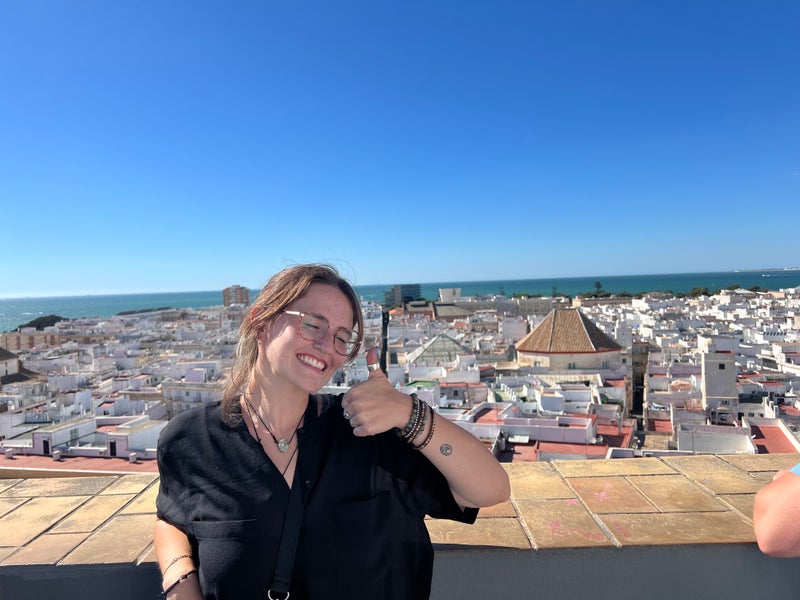
Beautiful Barcelona

Beautiful Mountainside in Barcelona

Boating in India

Braving the Sea in Spain

Breathtaking Architecture in Barcelona

Celebrations in Florence

Diving into Australia
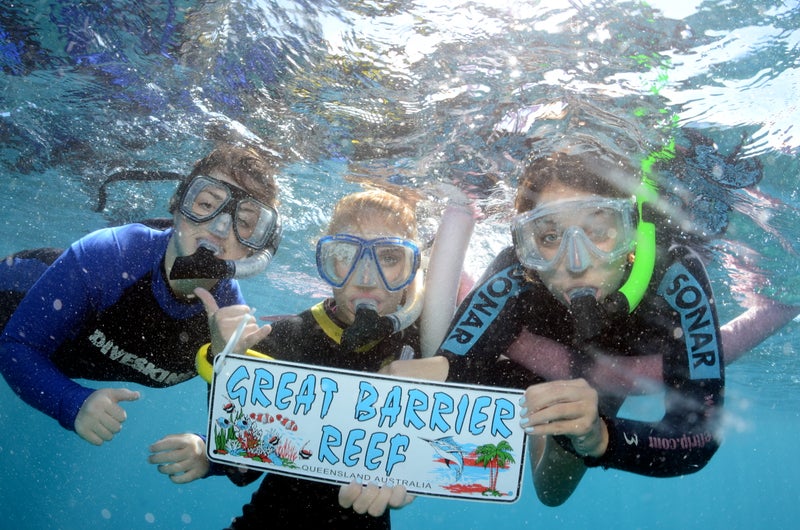
Diving into Culture in India

Ecuador Exploration
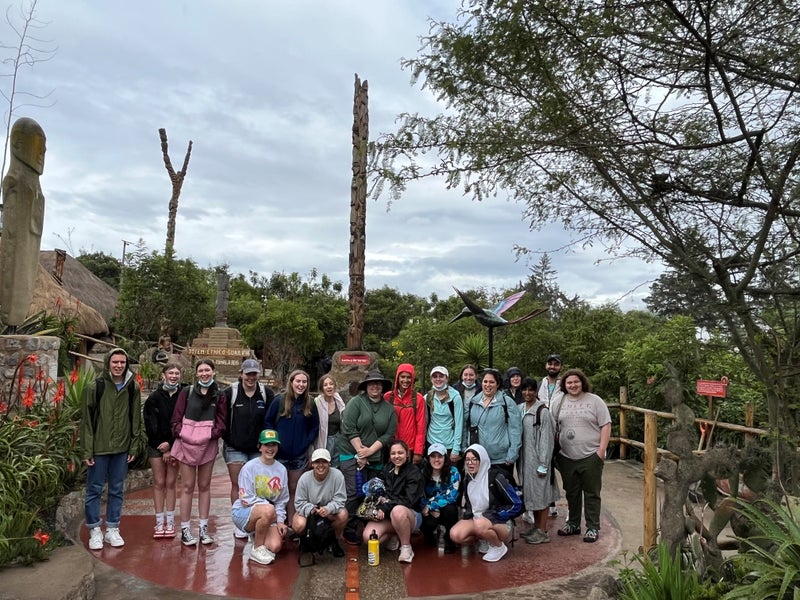
Elephants in India

Exploring India

Florence, Full of Color
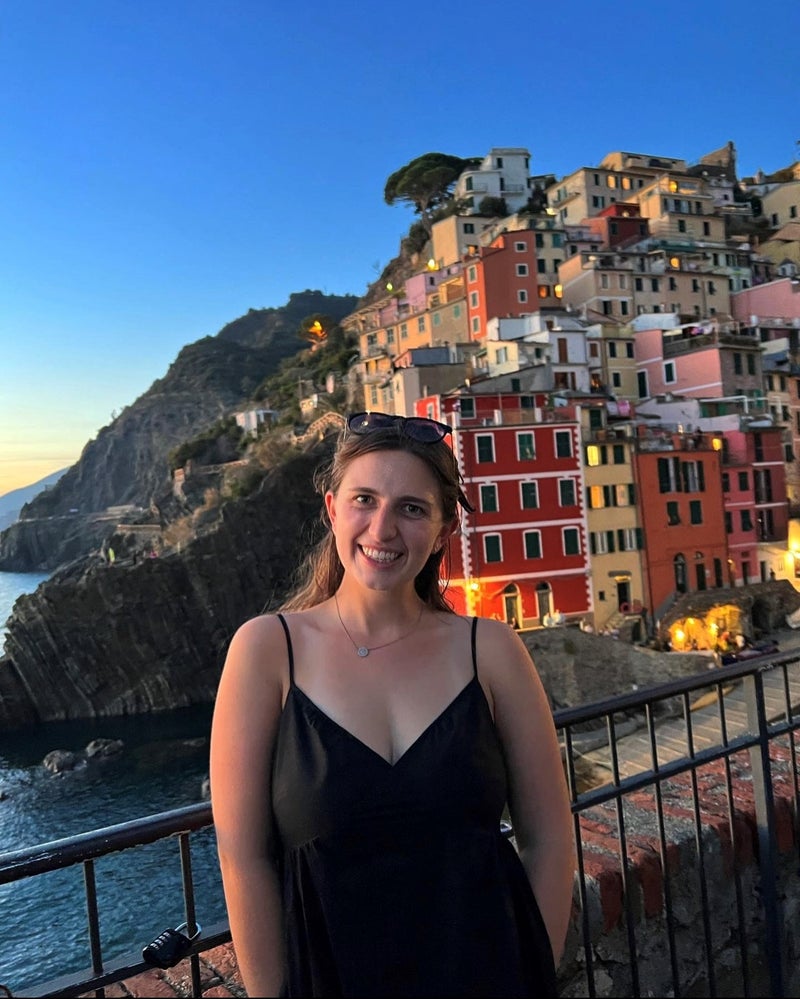
Great times in Greece

Joyous welcome to Japan

Landscapes in Ireland
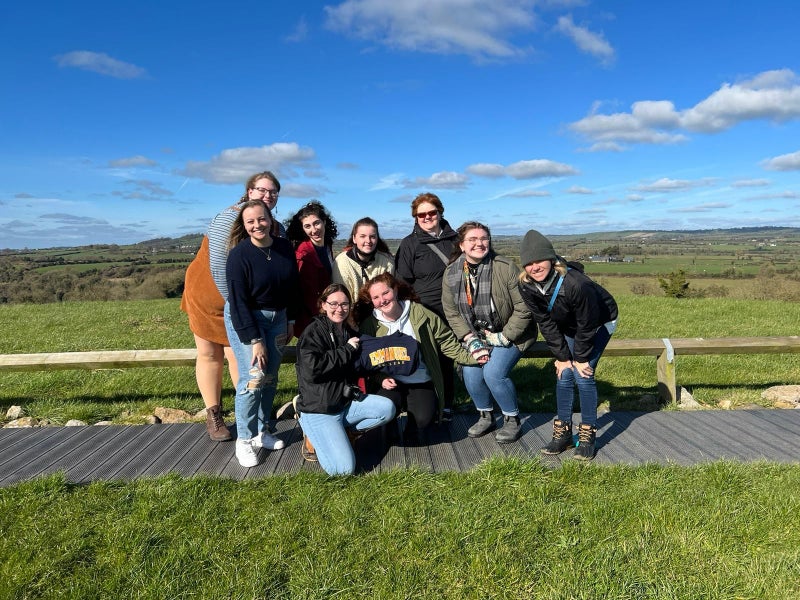
Leaning into Landmarks in Italy

Leisure in London

Masterful work in Morocco

Perusing in Peru

Portrait Shot in Portugal

Saints in Leeds
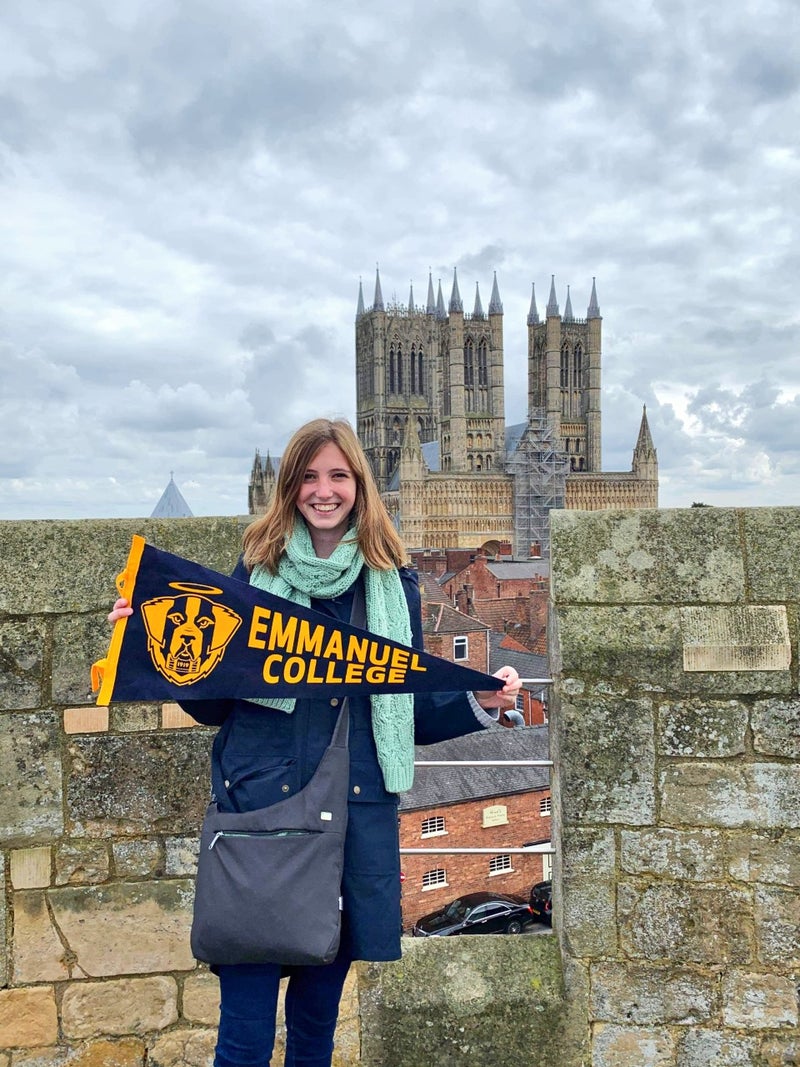
Saints Semester at Sea
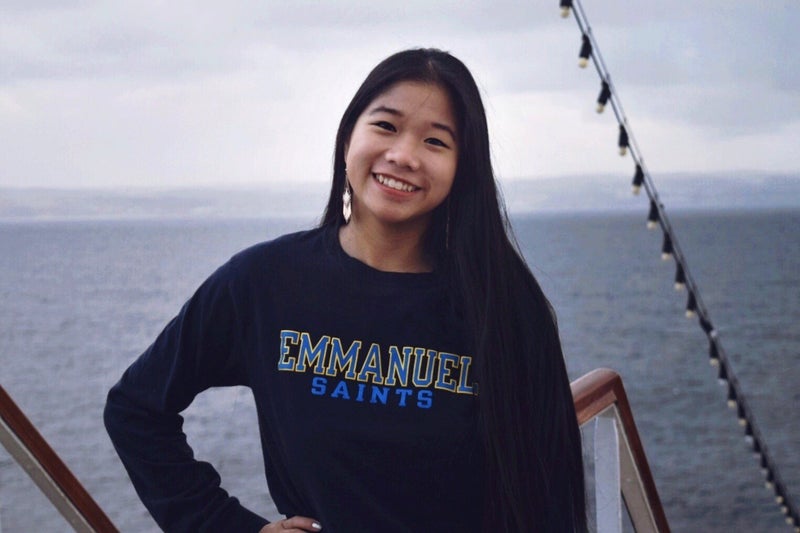
Snapshot of Seville

South African Sights
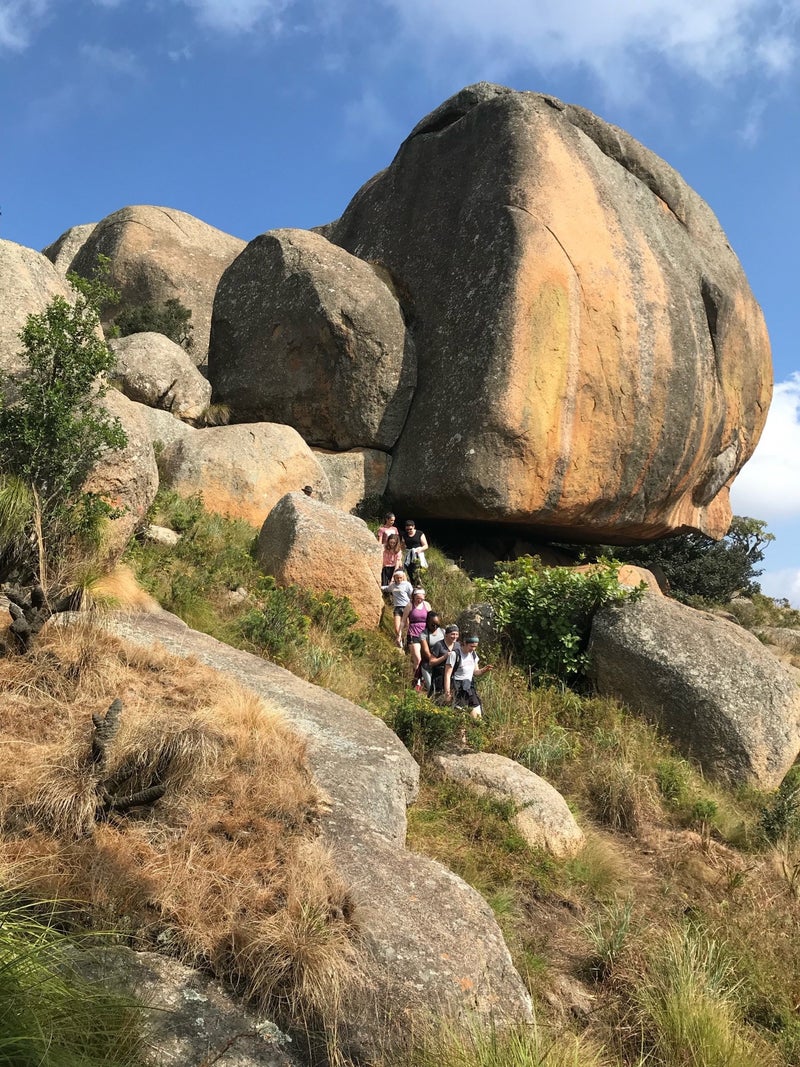
Sunsets in Florence

Sunsets in Sweden

Tower Bridge in London
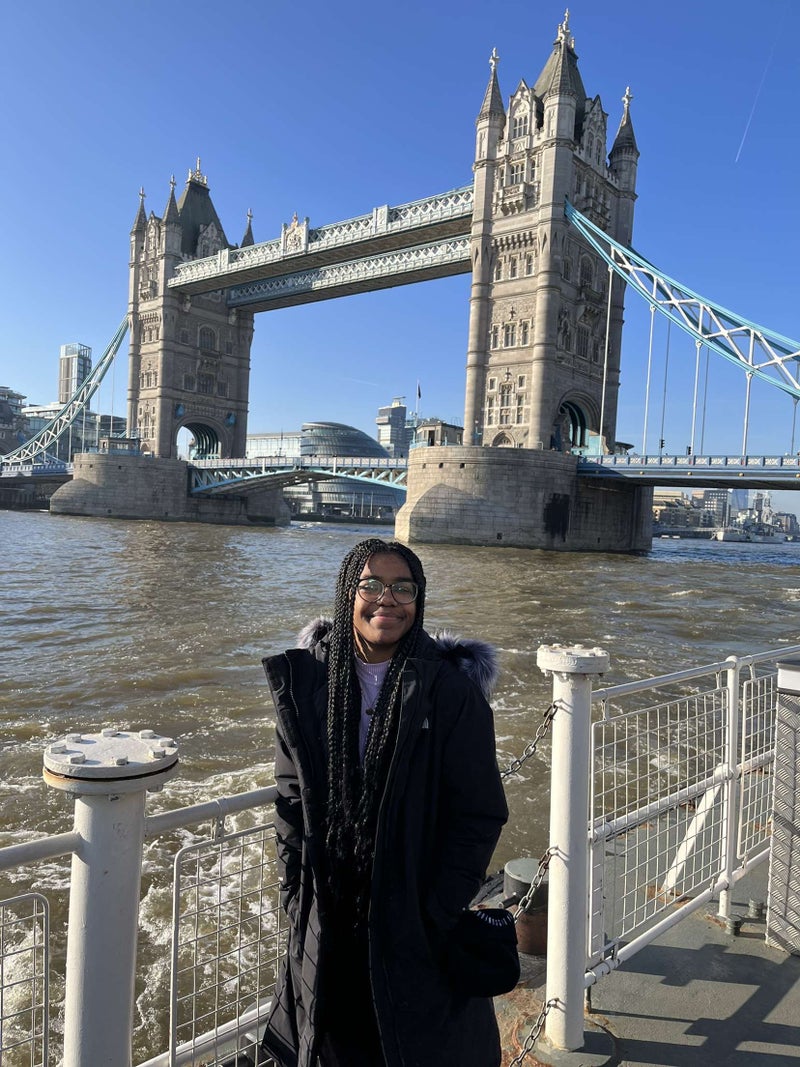
Views of Florence
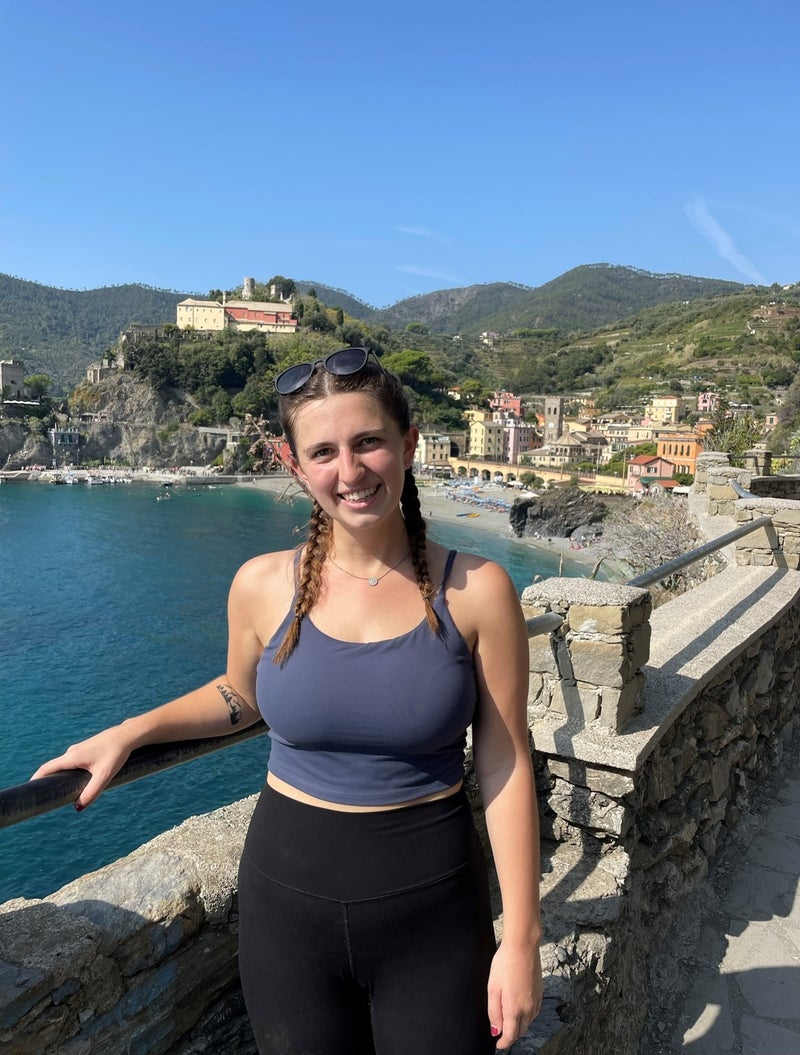
Wildlife in Australia
